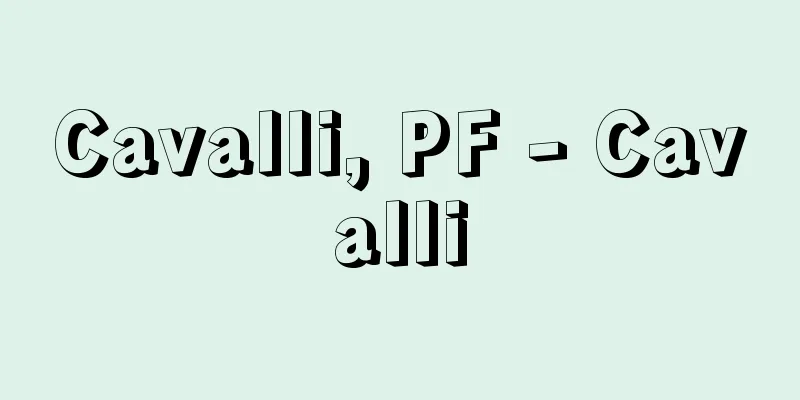Cavalli, PF - Cavalli

|
… From the Venetian SchoolThe Venetian style was popularized in Germany around 1600 by German musicians such as Hieronymus Praetorius (1560-1629), Hans Leo Hassler (1564-1612), a student of A. Gabrieli, and Schütz. The term Venetian is sometimes used to refer to the leading composers of Venetian opera in the 17th century (Francesco Cavalli (1602-76), Antonio Cesti (1623-69), and others) and the leading composers of concertos in the first half of the 18th century (Albinoni, B. Marcello, Vivaldi, and others). Cavalli and Chesti continued the opera traditions of Monteverdi in his later years at the Venetian theater, but in response to the shift in the venue of opera from the royal court to the theater, they began to place more importance on music than drama, bringing famous singers to the forefront and also putting effort into creating stage productions that would entertain the audience by using mechanical mechanisms. *Some of the terminology explanations that mention "Cavali, PF" are listed below. Source | Heibonsha World Encyclopedia 2nd Edition | Information |
|
… 【ベネチア楽派】より… 1600年前後のベネチア楽派の様式は,ドイツの音楽家プレトリウスHieronymus Praetorius(1560‐1629),A.ガブリエリの弟子ハスラーHans Leo Hassler(1564‐1612),シュッツらによってドイツにも広められた。 ベネチア楽派の呼称は,ときに,17世紀のベネチア・オペラの代表的な作曲家たち(カバリFrancesco Cavalli(1602‐76),チェスティAntonio Cesti(1623‐69)ら),18世紀前半のコンチェルトの代表的な作曲家たち(アルビノーニ,B.マルチェロ,ビバルディら)に対して用いられることもある。カバリやチェスティらは,晩年のモンテベルディのベネチアの劇場におけるオペラを継承しながらも,オペラが宮廷から劇場に場を変えたことに対応して,劇よりも音楽を重んじる方向に傾いて名歌手を表に出すと同時に,機械じかけを行使して人々の目を楽しませる舞台作りなどにも力を入れることになっていった。… ※「カバリ,P.F.」について言及している用語解説の一部を掲載しています。 出典|株式会社平凡社世界大百科事典 第2版について | 情報 |
>>: The Rosicrucian Order of the Kabbalah
Recommend
Gardel, M.
…Later, Louis Pécourt (1653-1729) and Louis Dupré...
Neuraminidase
…On the other hand, influenza viruses attach to c...
Medullary pyramid - Medullary pyramid
… [Pyramidal tract movement disorder] The axons o...
Pockels effect
...The relaxation time of the Kerr effect of nitr...
Shuzo Takiguchi
Poet and art critic. Born in Toyama Prefecture. St...
Natori [city] - Natori
A city in central Miyagi Prefecture, bordering Sen...
Walther Hermann Nernst
German physical chemist and discoverer of the thi...
Current collector - collector
A device that is placed between the stationary and...
Gelderland - Gelderland (English spelling)
A province in the eastern part of the Netherlands,...
Geochang Incident
…Hemp, silkworms, timber, and other agricultural ...
Pierre Monatte
1881‐1960 A French labor movement leader. He quit ...
Ika noashi - Ika no ashi
...The many spherical foxtail-like objects found ...
Legislative state - Rippo kokka
Modern post-revolution states are based on the pre...
Motor cells
…Flowering is also a growth movement, and occurs ...
Baillarger, J.
...It was the German psychiatrist Kraepelin who m...









